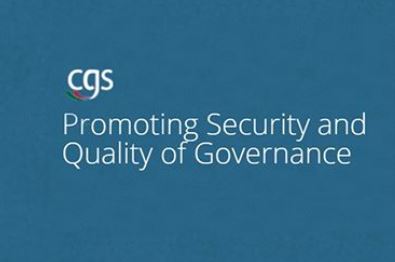News Flash

DHAKA, Oct 18, 2025 (BSS) - Speakers at an event today underscored the need for enhancing women and youth engagement and leadership in politics and society in a post-uprising Bangladesh.
They made the call at a colloquium titled "Breaking Barriers: Women & Youth in Leadership?" organized by the Centre for Governance Studies (CGS) at the Khulna Press Club, said a press release received here.
Representatives from various political parties, young politicians, women leaders, and members of civil society participated in the event.
The purpose of the session was to provide a platform for cross-party discussion on barriers and opportunities for women in politics, and to empower youth activists to critically engage with gender norms in political leadership.
BNP’s Information Secretary Azizul Baree Helal, Jamaat-e-Islami's Khulna City unit Secretary Adv. Jahangir Hossain Helal, Islami Andolan Bangladesh's Khulna City unit President Mufti Amanullah, CPB, Khulna former General Secretary Adv. Md. Babul Hawlader and NCP Khulna City's Organiser Dr Abdullah Chowdhury spoke on the occasion.
The colloquium was moderated by President of CGS Zillur Rahman.
The workshop was part of CGS's ongoing project "Women and Youth Engagement in Politics in a Post-Uprising Bangladesh", supported by the Embassy of the Kingdom of the Netherlands in Bangladesh.
Moderator Zillur Rahman initiated the conversation by posing a series of challenging questions to the panelists.
He asked them to address why women and young organizers in Khulna, despite their important roles, remain excluded from decision-making and to identify whether society, family, or party culture is the biggest barrier to their advancement.
Zillur Rahman pushed the panelists to discuss potential solutions, such as mandatory candidate quotas and the effectiveness of the reserved seat system for women.
Finally, he asked what could be done to combat online harassment and what qualities the next generation of Bangladeshi leadership should embody.
Azizul Baree Helal argued that while every society has barriers, they should not stop people from pursuing their dreams.
He asserted that leadership has no gender, pointing to young global figures like Greta Thunberg as examples.
Helal said the primary condition for leadership in Bangladeshi politics is patriotism, followed by courage, with skills and education being secondary.
He added that true leaders are those who can move people's hearts and that circumstance can often create leaders out of necessity.
Advocate Jahangir Hossain Helal described Bangladesh's youth population as a "national treasure."
He argued that barriers, whether familial, societal, or economic, are insignificant in the face of strong willpower.
"If a young person has the will to lead, they cannot be stopped," he declared, pointing to the July uprising as a powerful example.
He praised the many young men and women who risked their lives to fight authoritarianism and concluded with a direct appeal: "No matter what barriers may come, I urge the youth to find the willpower to break through."
Advocate Md. Babul Hawlader identified patriarchy as a primary barrier to women's leadership, noting that it is upheld by both men and women.
As an example, he explained that a mother may discourage her daughter from entering politics out of fear it will harm her marriage prospects, proving that "the playing field between men and women is not equal."
He connected this lack of opportunity to the broader issue of youth disillusionment, observing that many young people want to leave Bangladesh because they do not see a space for themselves in the political system.
He also stressed the need to distinguish between "token participation" and meaningful inclusion, pointing out that "to date, no political party has managed to incorporate 33pc women into their key decision-making bodies."
Dr Abdullah Chowdhury emphasized the need to view the political landscape both before and after the events of August 5th.
He noted that a new patriotism emerged among the youth post-uprising, but this motivation is fading as the political environment reverts to its previous state.
"The political parties have failed to retain this spirit and motivation," he stated. "If the toxic rhetoric and corrupt politics continue, women and youth will not find a space for themselves."
Mufti Amanullah stated that since women comprise more than half of Bangladesh's population, development is impossible without their inclusion in decision-making.
He noted, "Our party believes that the participation of women is necessary in leadership and the economy, provided they maintain their duties according to Islam."
Mufti Amanullah also raised a separate concern about technology, suggesting that excessive time spent on smartphones detracts from both education and political engagement among young people.
Following the panel discussion, youth and women delegates participated in a day-long workshop. The session featured group activities designed to further explore the barriers discussed and to brainstorm practical solutions.